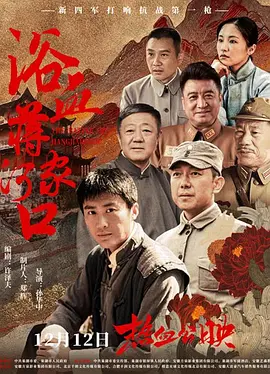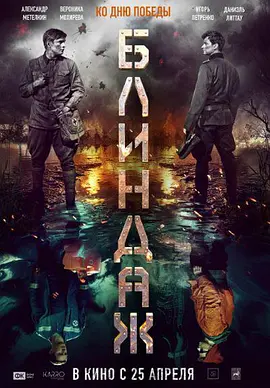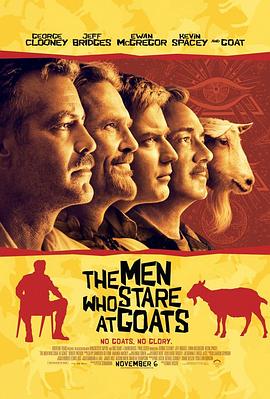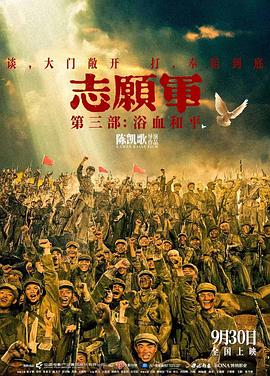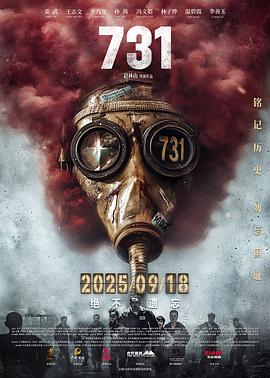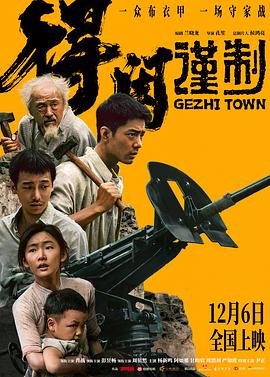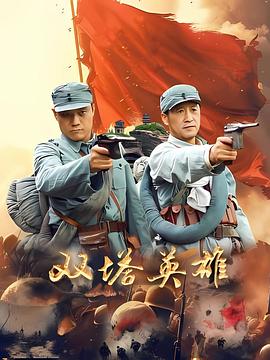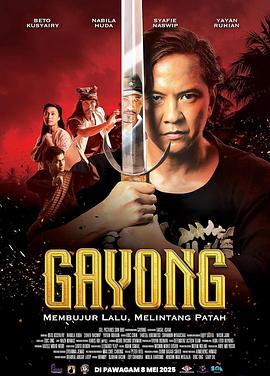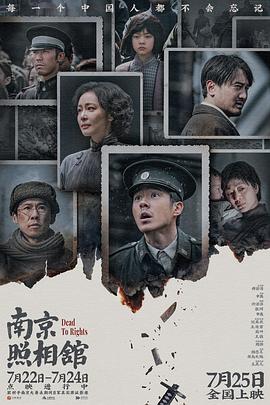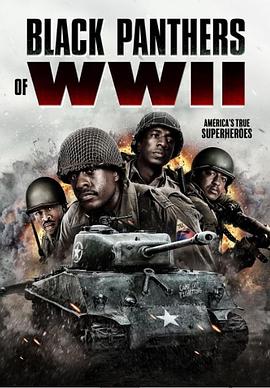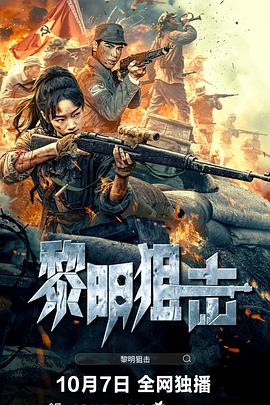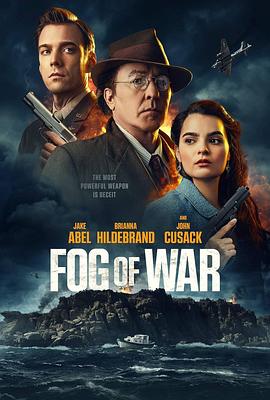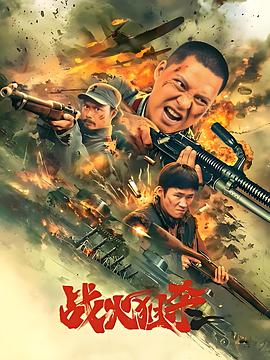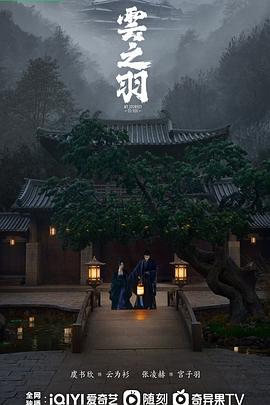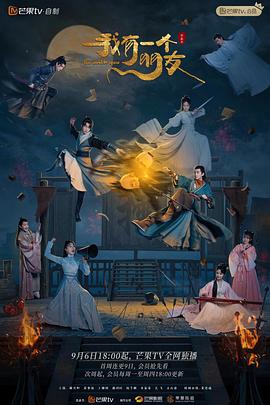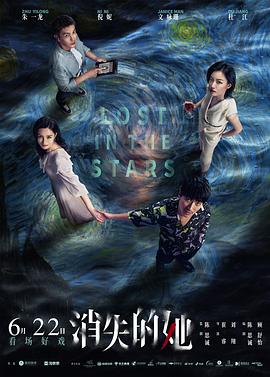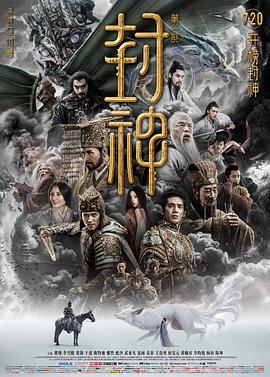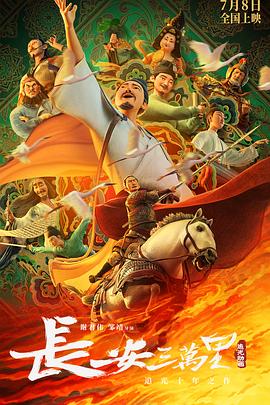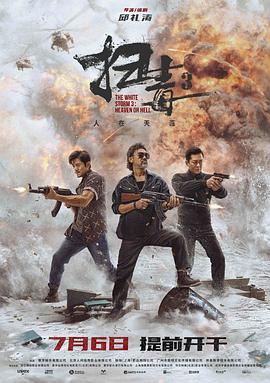- 正在播放《出生证明》HD中字 - 量子
- 提醒不要轻易相信视频中的任何广告,谨防上当受骗
- 技巧如遇视频无法播放或加载速度慢,可尝试切换播放节点或者切换解析
- 收藏全网影视网址:dy.aiaide.cc / dy.aiaide.cc ,记得收藏哟~
剧情:
In 1961, Stanislaw Rozewicz created the novella film "Birth Certificate" in cooperation with his brother, Taduesz Rozewicz as screenwriter. Such brother tandems are rare in the history of film but aside from family ties, Stanislaw (born in 1924) and Taduesz (born in 1921) were mutually bound by their love for the cinema. They were born and grew up in Radomsk, a small town which had "its madmen and its saints" and most importanly, the "Kinema" cinema, as Stanislaw recalls: for him cinema is "heaven, the whole world, enchantment". Tadeusz says he considers cinema both a charming market stall and a mysterious temple. "All this savage land has always attracted and fascinated me," he says. "I am devoured by cinema and I devour cinema; I'm a cinema eater." But Taduesz Rozewicz, an eminent writer, admits this unique form of cooperation was a problem to him: "It is the presence of the other person not only in the process of writing, but at its very core, which is inserperable for me from absolute solitude." Some scenes the brothers wrote together; others were created by the writer himself, following discussions with the director. But from the perspective of time, it is "Birth Certificate", rather than "Echo" or "The Wicked Gate", that Taduesz describes as his most intimate film. This is understandable. The tradgey from September 1939 in Poland was for the Rozewicz brothers their personal "birth certificate". When working on the film, the director said "This time it is all about shaking off, getting rid of the psychological burden which the war was for all of us. ... Cooperation with my brother was in this case easier, as we share many war memories. We wanted to show to adult viewers a picture of war as seen by a child. ... In reality, it is the adults who created the real world of massacres. Children beheld the horrors coming back to life, exhumed from underneath the ground, overwhelming the earth." The principle of composition of "Birth Certificate" is not obvious. When watching a novella film, we tend to think in terms of traditional theatre. We expect that a miniature story will finish with a sharp point; the three film novellas in Rozewicz's work lack this feature. We do not know what will be happen to the boy making his alone through the forest towards the end of "On the Road". We do not know whether in "Letter from the Camp", the help offered by the small heroes to a Soviet prisoner will rescue him from the unknown fate of his compatriots. The fate of the Jewish girl from "Drop of Blood" is also unclear. Will she keep her new impersonation as "Marysia Malinowska"? Or will the Nazis make her into a representative of the "Nordic race"? Those questions were asked by the director for a reason. He preceived war as chaos and perdition, and not as linear history that could be reflected in a plot. Although "Birth Certificate" is saturated with moral content, it does not aim to be a morality play. But with the immense pressure of reality, no varient of fate should be excluded. This approached can be compared wth Krzysztof Kieslowski's "Blind Chance" 25 years later, which pictured dramatic choices of a different era. The film novella "On the Road" has a very sparing plot, but it drew special attention of the reviewers. The ominating overtone of the war films created by the Polish Film School at that time should be kept in mind. Mainly owing to Wajda, those films dealt with romantic heritage. They were permeated with pathos, bitterness, and irony. Rozewicz is an extraordinary artist. When narrating a story about a boy lost in a war zone, carrying some documents from the regiment office as if they were a treasure, the narrator in "On the Road" discovers rough prose where one should find poetry. And suddenly, the irrational touches this rather tame world. The boy, who until that moment resembled a Polish version of the Good Soldier Schweik, sets off, like Don Quixote, for his first and last battle. A critic described it as "an absurd gesture and someone else could surely use it to criticise the Polish style of dying. ... But the Rozewicz brothers do no accuse: they only compose an elegy for the picturesque peasant-soldier, probably the most important veteran of the Polish war of 1939-1945." "Birth Certificate" is not a lofty statement about national imponderabilia. The film reveals a plebeian perspective which Aleksander Jackieqicz once contrasted with those "lyrical lamentations" inherent in the Kordian tradition. However, a historical overview of Rozewicz's work shows that the distinctive style does not signify a fundamental difference in illustrating the Polish September. Just as the memorable scene from Wajda's "Lotna" was in fact an expression of desperation and distress, the same emotions permeate the final scene of "Birth Certificate". These are not ideological concepts, though once described as such and fervently debated, but rather psychological creations. In this specific case, observes Witold Zalewski, it is not about manifesting knightly pride, but about a gesture of a simple man who does not agree to be enslaved. The novella "Drop of Blood" is, with Aleksander Ford's "Border Street", one of the first narrations of the fate of the Polish Jews during the Nazi occupation. The story about a girl literally looking for her place on earth has a dramatic dimension. Especially in the age of today's journalistic disputes, often manipulative, lacking in empathy and imbued with bad will, Rozewicz's story from the past shocks with its authenticity. The small herione of the story is the only one who survives a German raid on her family home. Physical survial does not, however, mean a return to normality. Her frightened departure from the rubbish dump that was her hideout lead her to a ruined apartment. Her walk around it is painful because still fresh signs of life are mixed with evidence of annihilation. Help is needed, but Mirka does not know anyone in the outside world. Her subsequent attempts express the state of the fugitive's spirits - from hope and faith, moving to doubt, a sense of oppression, and thickening fear, and finally to despair. At the same time, the Jewish girl's search for refuge resembles the state of Polish society. The appearance of Mirka results in confusion, and later, trouble. This was already signalled by Rozewicz in an exceptional scene from "Letter from the Camp" in which the boy's neighbour, seeing a fugitive Russian soldier, retreats immediately, admitting that "Now, people worry only about themselves." Such embarassing excuses mask fear. During the occupation, no one feels safe. Neither social status not the aegis of a charity organisation protects against repression. We see the potential guardians of Mirka passing her back and forth among themselves. These are friendly hands but they cannot offer strong support. The story takes place on that thin line between solidarity and heroism. Solidarity arises spontaneously, but only some are capable of heroism. Help for the girl does not always result from compassion; sometimes it is based on past relations and personal ties (a neighbour of the doctor takes in the fugitive for a few days because of past friendship). Rozewicz portrays all of this in a subtle way; even the smallest gesture has significance. Take, for example, the conversation with a stranger on the train: short, as if jotted down on the margin, but so full of tension. And earlier, a peculiar examination of Polishness: the "Holy Father" prayer forced on Mirka by the village boys to check that she is not a Jew. Would not rising to the challenge mean a death sentance? Viewed after many years, "Birth Certificate" discloses yet another quality that is not present in the works of the Polish School, but is prominent in later B-class war films. This is the picture of everyday life during the war and occupation outlined in the three novellas. It harmonises with the logic of speaking about "life after life". Small heroes of Rozewicz suddenly enter the reality of war, with no experience or scale with which to compare it. For them, the present is a natural extension of and at the same time a complete negation of the past. Consider the sleey small-town marketplace, through which armoured columns will shortly pass. Or meet the German motorcyclists, who look like aliens from outer space - a picture taken from an autopsy because this is how Stanislaw and Taduesz perceived the first Germans they ever met. Note the blurred silhouettes of people against a white wall who are being shot - at first they are shocking, but soon they will probably become a part of the grim landscape. In the city centre stands a prisoner camp on a sodden bog ("People perish likes flies; the bodies are transported during the night"); in the street the childern are running after a coal wagon to collect some precious pieces of fuel. There's a bustle around some food (a boy reproaches his younger brother's actions by singing: "The warrant officer's son is begging in front of the church? I'm going to tell mother!"); and the kitchen, which one evening becomes the proscenium of a real drama. And there are the symbols: a bar of chocolate forced upon a boy by a Wehrmacht soldier ("On the Road"); a pair of shoes belonging to Zbyszek's father which the boy spontaneously gives to a Russian fugitive; a priceless slice of bread, ground under the heel of a policeman in the guter ("Letters from the Camp"). As the director put it: "In every film, I communicate my own vision of the world and of the people. Only then the style follows, the defined way of experiencing things." In Birth Certificate, he adds, his approach was driven by the subject: "I attempted to create not only the texture of the document but also to add some poetic element. I know it is risky but as for the merger of documentation and poety, often hidden very deep, if only it manages to make its way onto the screen, it results in what can referred to as 'art'." After 1945, there were numerous films created in Europe that dealt with war and children, including "Somewhere in Europe" ("Valahol Europaban", 1947 by Geza Radvanyi), "Shoeshine" ("Sciescia", 1946 by Vittorio de Sica), and "Childhood of Ivan" ("Iwanowo dietstwo" by Andriej Tarkowski). Yet there were fewer than one would expect. Pursuing a subject so imbued with sentimentalism requires stylistic disipline and a special ability to manage child actors. The author of "Birth Certificate" mastered both - and it was not by chance. Stanislaw Rozewicz was always the beneficent spirit of the film milieu; he could unite people around a common goal. He emanated peace and sensitivity, which flowed to his co-workers and pupils. A film, being a group work, necessitates some form of empathy - tuning in with others. In a biographical documentary about Stanislaw Rozewicz entitled "Walking, Meeting" (1999 by Antoni Krauze), there is a beautiful scene when the director, after a few decades, meets Beata Barszczewska, who plays Mireczka in the novella "Drops of Blood". The woman falls into the arms of the elderly man. They are both moved. He wonders how many years have passed. She answers: "A few years. Not too many." And Rozewicz, with his characteristic smile says: "It is true. We spent this entire time together."
收起
相关影片
2025
战争片
中国大陆
HD
2024
战争片
俄罗斯
维罗尼卡·莫希雷娃 伊戈尔·别特连科 Fyodor Lavrov Mikhail Novikov 阿列克谢·舍甫琴科夫 亚历山大·梅乔金 Maksim Saprykin 玛格丽塔·阿布罗斯金 Nikita Abdulov 迪安·迈耶 Oleg Novikov Artem Zlobin Kirill Taskin Andrey Marusin Maksim Plekhanov Maksim Gorshkov Mikhail Sevastyanov Daniel Littau Linda Akhmetzyan
一对朋友,一个德国人和一个俄国人,穿越时空最终来到了1941年。两位朋友被迫做出决定,并要应对他们无法想象的困难。他们的友谊能否度过难关,保罗和谢尔盖又会站在哪一边?
HD
HD
2009
战争片
美国
乔治·克鲁尼 伊万·麦克格雷格 杰夫·布里吉斯 凯文·史派西 史蒂芬·朗 罗伯特·帕特里克 瓦利德·祖伊特 斯蒂芬·鲁特 格伦·莫肖尔 尼克·奥弗曼 蒂姆·格里芬 丽贝卡·麦德 雅各布·布朗 布拉德·格伦伯格 Matt Newton 罗伯特·库蒂斯·布朗 赫拉奇·蒂蒂赞 Shafik N. Bahou 德鲁·塞尔策 Michael-David Aragon 泰瑞·塞尔皮科 Diego Serrano Reginald Huc 阿荣·希弗 斯蒂夫·维亭 Jay Spadaro 切克·伯恩哈特 乔治·W· 布
鲍勃•维尔登(伊万•麦克格雷格Ewan McGregor 饰)是个婚姻失败的美国记者,绝望中来到中东,试图设法潜入伊拉克进行战地新闻报道以赢回前妻芳心。鲍勃在科威特遇到了以前采访中听说过的私家建筑商林
HD
2025
战争片
大陆
TC
2025
战争片
大陆
TC
2025
战争片
大陆
TC
2025
战争片
大陆
HD
2025
战争片
大陆
HD
2025
战争片
马来西亚
贝托·库西亚伊 Nabila Huda Syafie Naswip 雅彦·鲁伊安 陈沛江 武田裕光 Shannon Wiratchai Ebby Saiful Nasir Jani Wan Raja Anas Ridzuan Shah Kimin
Biography about the late great Dato' Meor Abd Rahman, grandmaster and founder of Silat Gayong Ma
HD
2025
战争片
大陆
TC
2025
战争片
美国
随着第二次世界大战到达转折点,第761坦克营,一个被称为黑豹的非裔美国人占多数的部队,必须在突出部战役中为阻止德国的前进而战。自由世界的命运掌握在他们手中。
HD
2025
战争片
大陆
HD
2025
战争片
美国
杰克·阿贝尔 布里安娜·希德布兰德 约翰·库萨克 盖佐·罗赫里格 米拉·索维诺 David B. Meadows 萨尔·伦迪诺 戴维·基尔 Julia M. Ebner 格雷格·纳特彻尔 保罗·罗根 艾瑞克·卢茨 约翰·D·希克曼 阿比盖尔·马洛
故事发生在第二次世界大战的最后几个月,《战争之雾》告诉了受伤的美国飞行员吉恩和他的OSS特工未婚妻佩妮回到马萨诸塞州的一处偏远庄园,与佩妮的远房叔叔罗伯特住在一起的故事。在她不知情的情况下,OSS招募
HD
2025
战争片
大陆
TC
正在热播
更多
2023
国产剧
大陆
热播
更新至第33集
2023
国产剧
大陆
热播
更新至第17集
2023
国产剧
大陆
热播
更新至第21集
2023
国产剧
大陆
热播
更新至第28集
2023
国产剧
大陆
热播
更新至第14集
2023
国产剧
大陆
独家推荐
更新至第13集
2022
剧情片
大陆
独家推荐
HD
2023
科幻片
美国
独家推荐
HD
2023
动作片
大陆
独家推荐
费翔 李雪健 黄渤 于适 陈牧驰 娜然 此沙 武亚凡 夏雨 袁泉 王洛勇 侯雯元 黄曦彦 李昀锐 杨玏 陈坤 许还山 高曙光 冯绍峰 杨立新 丁勇岱 高冬平 徐冲 韩鹏翼 单敬尧 吴汉坤 百力嘎 刘乐 许翔 刘涵 徐菲 孙睿 耿业庭 金志浩 屈愉超 黄涛 樊汶东 姜宝成 阿仁 米铁增 僧格仁钦 马文忠 宁文彤 张经伟 杨添皓 李泽宇 夏晨旭 宋宁峰 俞颖 吴超 杨大鹏 赵磊 张振煊 宋渡宇 文波 图门巴雅尔 慕晓博 春晓 其勒木格 张雪菡 钱波 巴雅尔图 吴兴国 那尔那茜 刘潮 张艺泷 孙煌辰 艾力江·
商王殷寿(费翔 饰)勾结狐妖妲己(娜然 饰),暴虐无道,引发天谴。昆仑仙人姜子牙(黄渤 饰)携“封神榜”下山,寻找天下共主,以救苍生。西伯侯之子姬发(于适 饰)逐渐发现殷寿的本来面目,反出朝歌。各
HD
2023
动漫
大陆
独家推荐
HD
2023
国产剧
大陆
热播
更新至第27集

